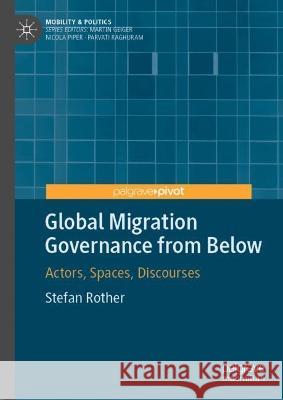Global Migration Governance from Below: Actors, Spaces, Discourses » książka
topmenu
Global Migration Governance from Below: Actors, Spaces, Discourses
ISBN-13: 9783031069833 / Angielski / Twarda / 2022 / 127 str.
Kategorie BISAC:
Wydawca:
Springer International Publishing AG
Seria wydawnicza:
Język:
Angielski
ISBN-13:
9783031069833
Rok wydania:
2022
Ilość stron:
127
Wymiary:
21.0 x 14.8
Oprawa:
Twarda
Dodatkowe informacje:
Wydanie ilustrowane











